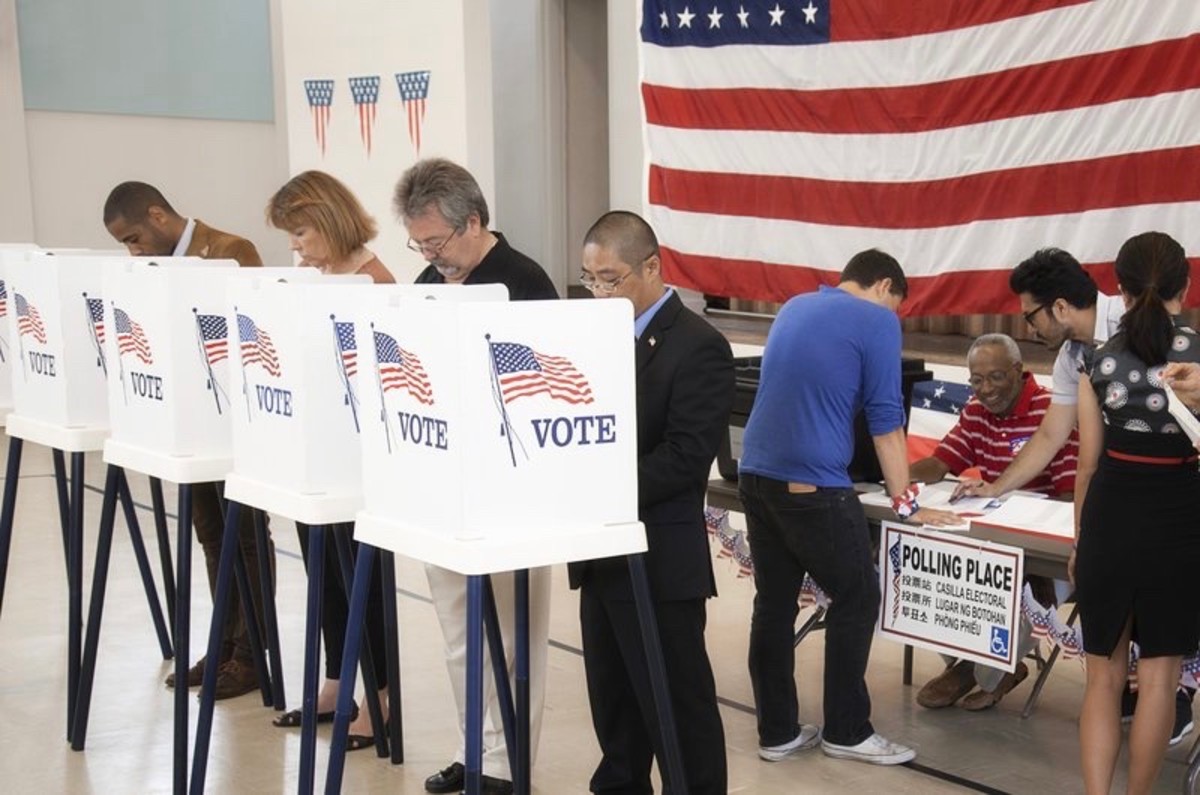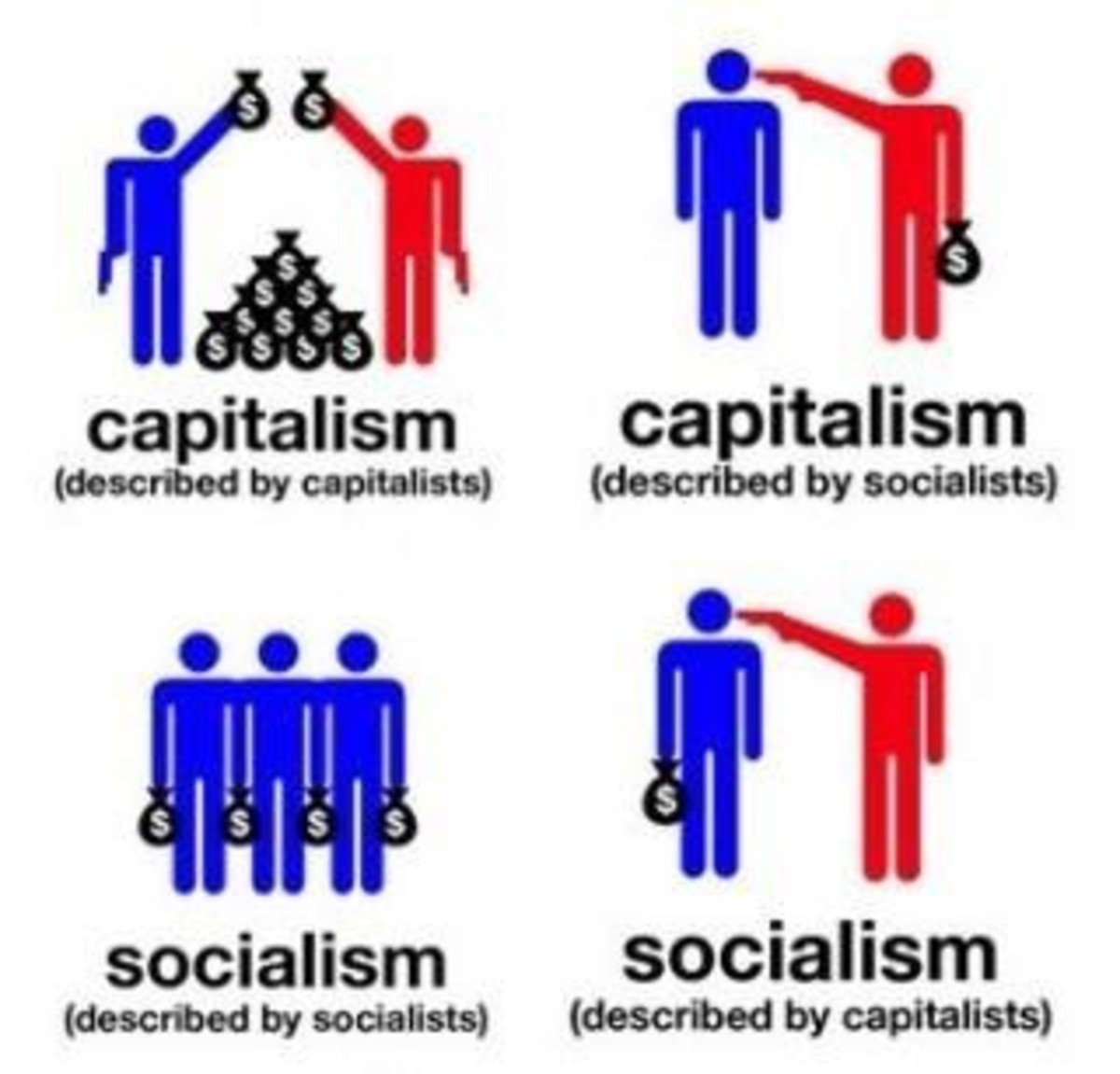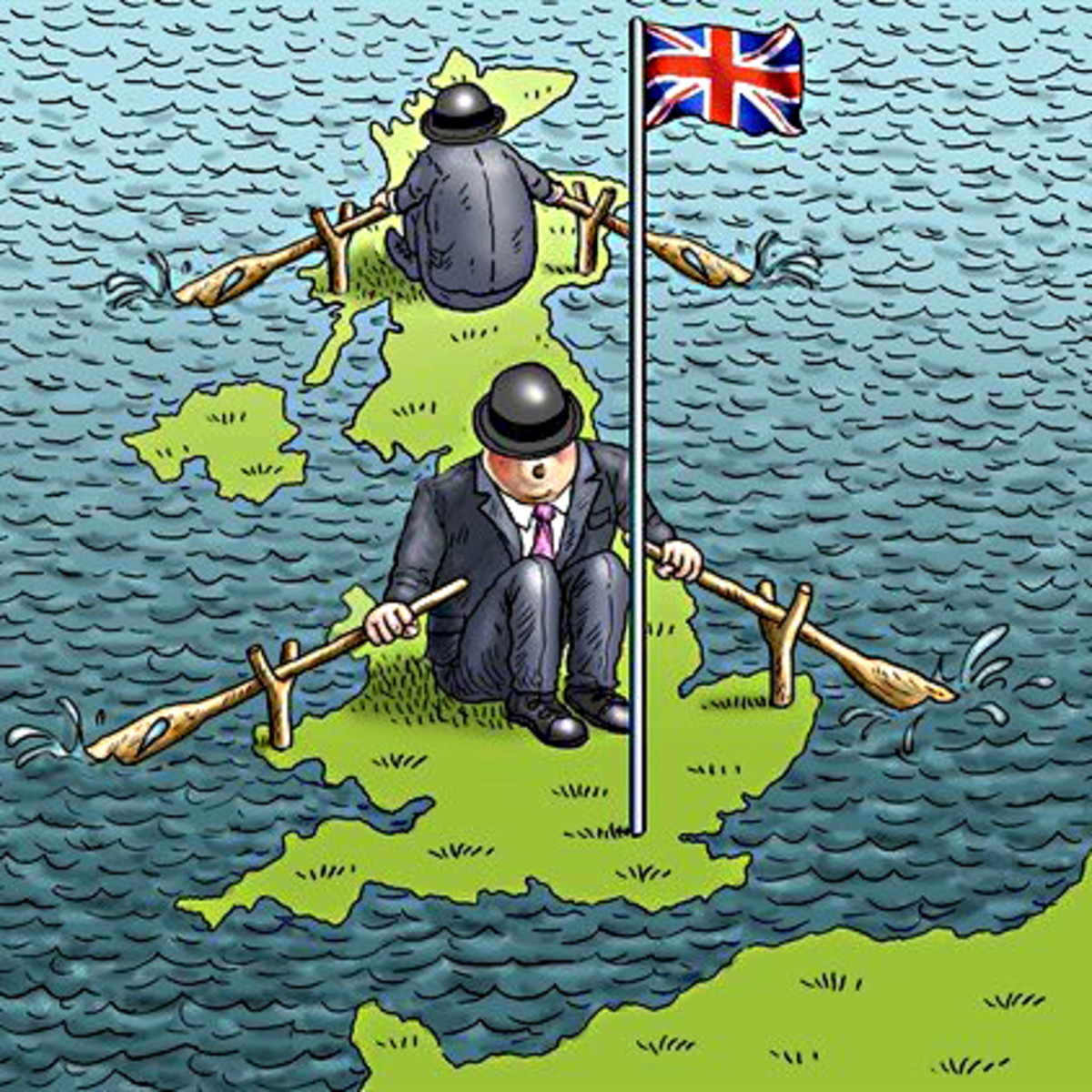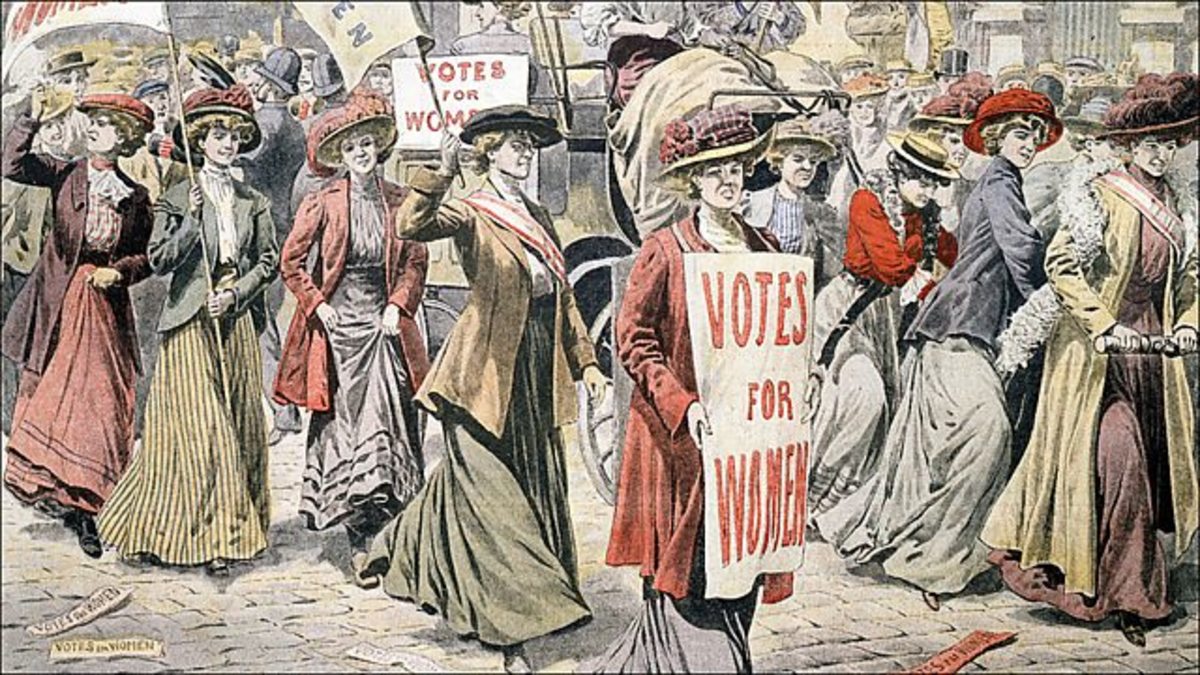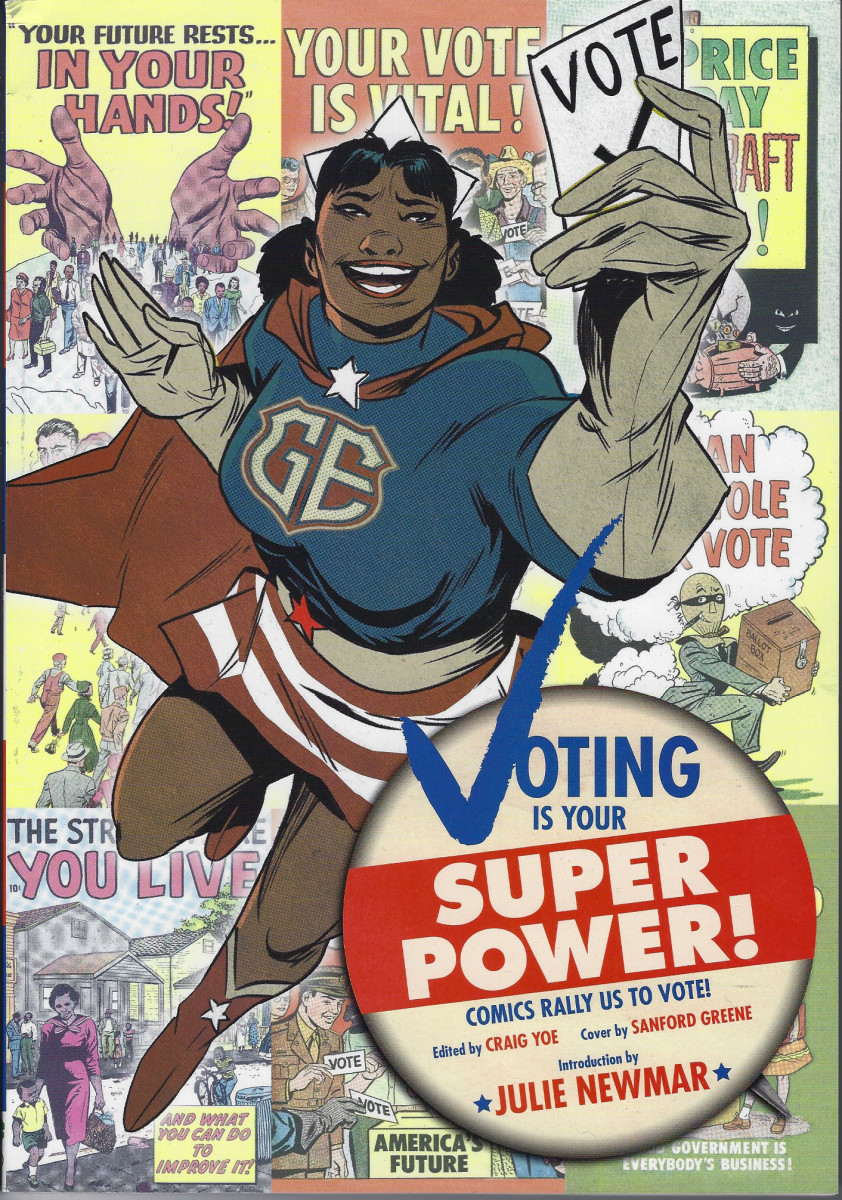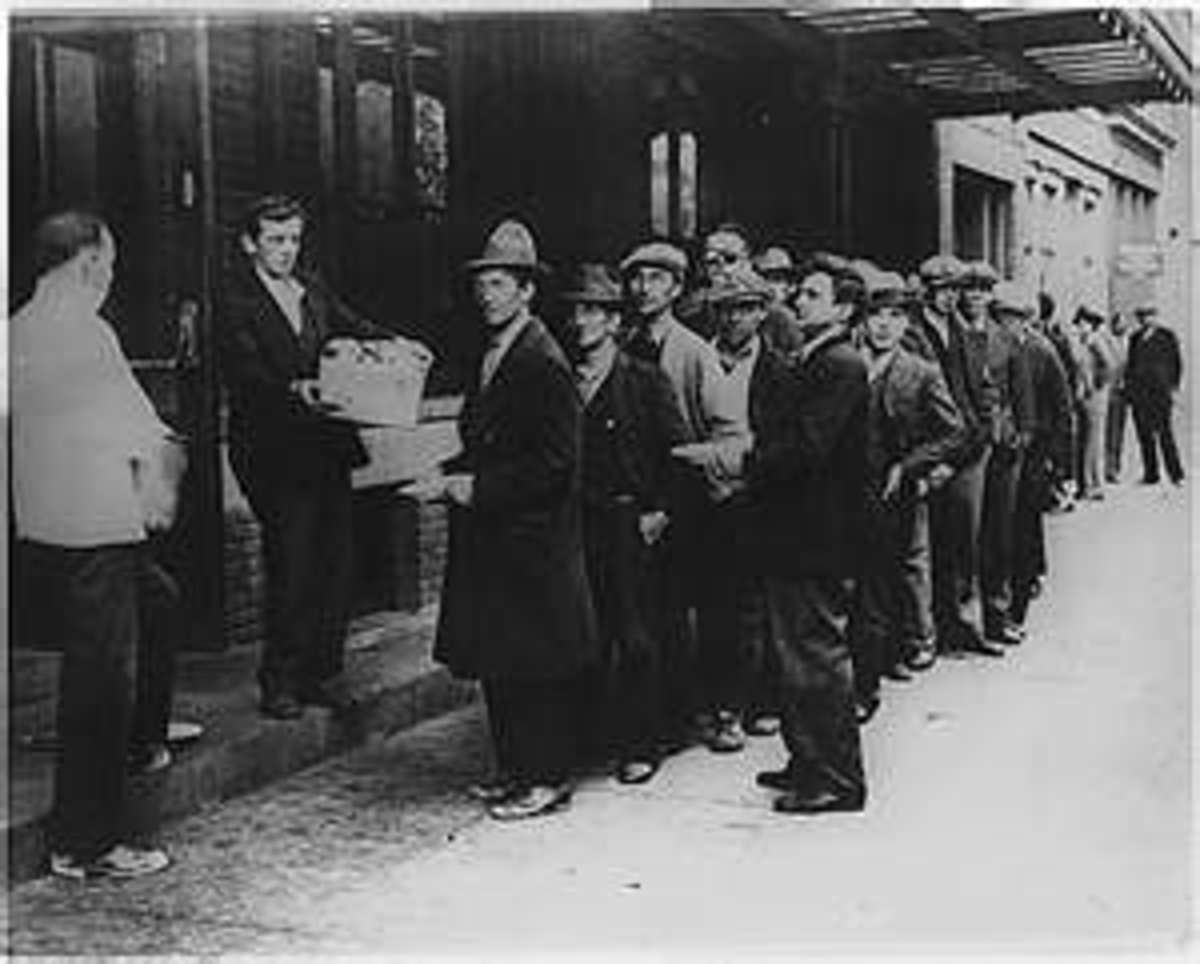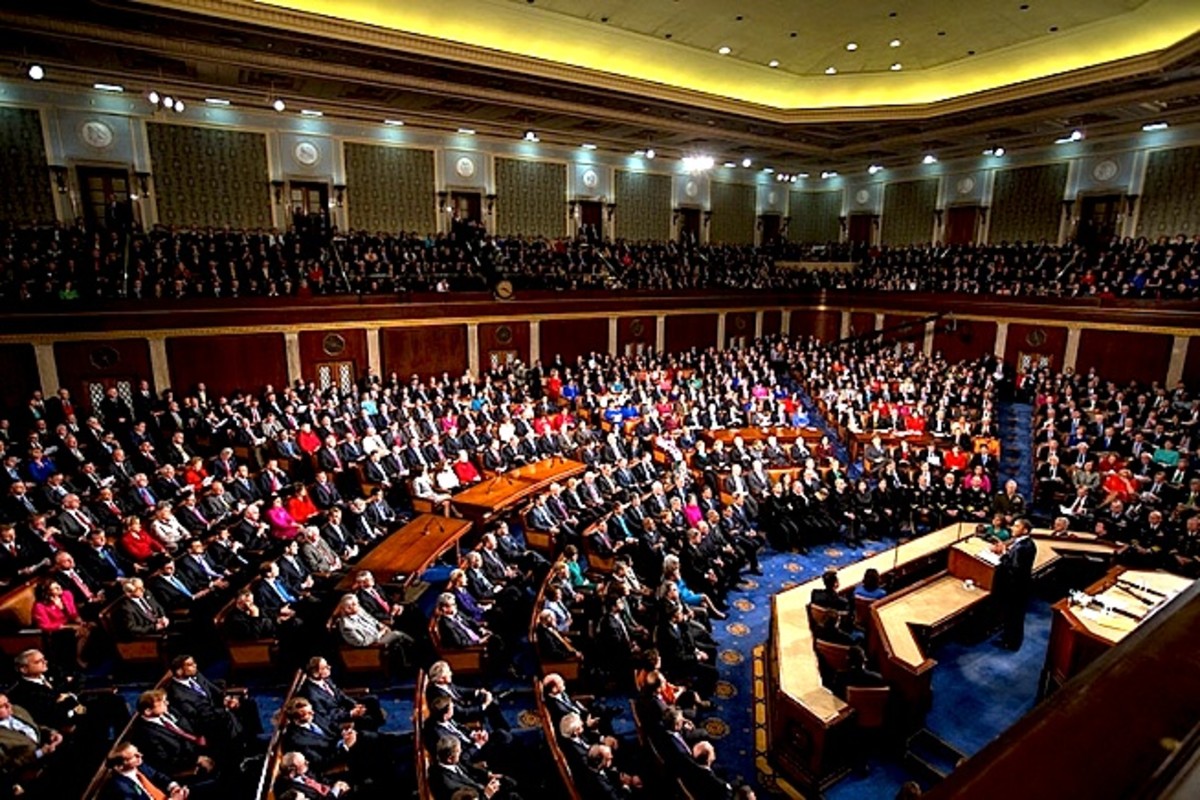Unrigging the System - Before Ballots become Pitch Forks
Working, poor, and young people throughout the West are on the verge of revolution - a Western Spring. This is manifest in vastly differing manners - from Trump, La Pen, & Farage, to Bernie, Trudeau, & Corbyn. But there is a shared frustration with economic squeeze, accelerated by corrupt, rigged and unresponsive political establishments. People have differing views on the causes, and thus the solutions, to these maladies. And in order to bring these public policy debates before the people in an honest and fair manner, we need to reform and unrig our political and electoral systems.
The first step is to vote. And not just for president. Presidents aren’t dictators, so simply voting every four years just isn’t enough. Elections with the most impact on our daily lives are at the local level – our school boards, city councils, state legislatures. Even more important than general elections are primaries. And elections – though they occur somewhere in America seemingly every Tuesday – are but dipping ones’ toe into the political process.
Wealthy campaign donors and paid lobbyists have the ear of members of congress at beckoned call - they also need to hear how their constituents feel and what they want.
Call your legislator. Don’t get nervous - you’ll likely never talk to them, personally. You simply tell their assistant (or the voicemail of their assistant) your name, whereabouts you reside, and what issue or piece of legislation you wish them to support or oppose. If they refuse: you sign petitions, write letters to the editor, engage in click-tivism, support primary competitors, canvass & phone bank, peacefully protest, practice civil disobedience when necessary...
Unfortunately, so long as regular folks have little reason to believe the political and electoral processes to be fair, just getting people to care enough to vote, let alone risk arrest…
Money is the root of all evil. Political bribery has always existed. But in America, we’ve essentially legalized the practice. Our Supreme Court has determined – just in the past forty years - that corporations are people and money is speech (which happens to coincide with the time frame of wage-stagnation). According to the corporatists comprising the Supreme Court, corporations and the wealthy have the constitutionally protected free speech rights to lavish politicians with campaign cash (Buckley, Bellotti). They’ve declared that there is not even an appearance of corruption in unlimited dark-money “donations” (Citizens United). They’ve set the judicial precedent that quid pro quo is insufficient evidence of corruption (Bob McDonnell).
Sane people find these sort of things to be somewhere on the scale between ridiculous and vomitous. And it speaks to the mistrust we rightly have in government.
But voting for Trump, or Bernie, or whoever else can’t fix that alone (unless you count waiting for justices to die and hoping their replacement votes correctly on an eventual case). The POTUS doesn’t get to overrule the SCOTUS, and only some even have the opportunity (macabre) to shape it, which leaves the matter still to the whims of nine fallible human beings.
The only way to overrule the SCOTUS is by amending the US Constitution – which every generation of Americans has done, and which our founding fathers fully expected of us (they put the first ten in there themselves).
Congress could conceivably come together and call for a constitutional convention for an amendment to get money out of politics. But people who’ve thrived under a given system are unlikely to want to change its rules. Fortunately, the states can also call for a convention, and must ratify any amendment, no matter its origin.
The 28th Amendment for Free & Fair Elections will ban political bribery on behalf of corporations, unions, special interest groups – all of it. That way, our elected officials will be accountable to their constituents – the voters - rather than the sponsors who fund their (re)election campaigns. A recent Princeton study going back to the 1970s showed that the will of the people has essentially zero correlation with public policy, unless the wealthy happen to agree with the general public. That’s not democracy. That’s oligarchy.
While the specifics are not always clear, and require the luxury of time to research, the vast majority of people have a sense of economic distress caused by the wealthy using corrupt politicians and governments to extract more and more for themselves.
Once we reform our system so that the decisions of the people determining our economic (foreign, immigration…) policies are based upon how the people will be affected rather than just their corporate sponsors, we will have regained control of our government. Revolution. Without a single shot fired. Our founding fathers were both brave enough to take up arms for freedom and wise enough to ensure that we wouldn’t have to.
The amendment is the tallest and utmost hurdle. And but the beginning. That’s just to get money out of politics. The obvious question is how else, exactly, political campaigns should be funded. Many people want a reasonable cap on transparent personal donations, with the government matching those funds. We could give a credit to each voting-age citizen that could be transferred to their preferred candidate. We could eliminate the practice entirely with publicly funded elections.
And suddenly…I’ve got a hard on. We’re talking about how to best shape a government that will represent the people. There are good and bad ideas, of course. Some people think we should pay congress the minimum wage, or withhold their pay should they fail to pass a budget – I say we should pay them more, not less, in order to attract better talent to public service. Many people are in favor of term-limits - I think the people should be able to elect whomever they want to represent them, so long as the electoral system is fair.
Our current system is profoundly and openly unfair (fair is a place they judge pigs & pumpkins, but I digress).
Given the electoral college system, my vote for president is basically worthless. Ohio, Florida, Pennsylvania, Virginia, Colorado… There are but a handful of swing-states, and those are essentially the only places where individual Americans have even a modicum of a say in who will be their president. We could switch to a popular vote – but then politicians would mainly cater to areas where voters are concentrated like California & New York (which could leave them vulnerable to…).
The presidential debates are rigged – the two major-party candidates have their respective places reserved, but 15% support is required before people are exposed to the ideas of third-party candidates (Jill Stein and Gary Johnson, currently).
There are no national standards for who gets to be on the ballot. Some states just want money in exchange for a spot – as little as a couple hundred bucks. Some states require hundreds of confirmed signatures of registered voters from every single county – which requires significant resources and name recognition well in advance.
There are no national standards for selecting a nominee. The political parties control the nomination processes. The parties decide how many debates there will be, and the standard for which candidates’ ideas are granted access to that megaphone. The parties decide whether there are unbound delegates, or unpledged (super) delegates – both of whom serve as establishment fail-safes, just in case the people get behind a populist fringe candidate. States decide whether to hold primaries or caucuses (caucuses are fundamentally unfair to working people). State parties decide whether to hold open, mixed, or closed primaries (closed & mixed are unfair to independent or unaffiliated voters, in addition to those same populist or fringe candidates). State party chairs determine the rules (or at least control the process for adopting rules) at caucuses. Elections officials decide how many polling stations to open, and whether people in line at closing of the polls still get to vote, how long before the election you must’ve registered, whether to hold recounts in close or challenged elections (short of a lawsuit).
By gerrymandering districts (every ten years following the census), politicians get to pick their voters. They stack & pack the electorate to their benefit – rounding like-minded voters into noncompetitive, incumbency-protecting safe districts – where the only threat of losing office is being primaried by someone further to the political extreme. This not only creates more extreme politicians, but increasingly extreme voters and political parties. We could easily use computer programs to draw unbiased boundaries (with oversight committees).
Politicians decide whether you get to vote if you have a felony (and decide which felonies are disqualifying, if any). Elections officials can purge your name from the rolls if you haven’t recently voted, or they think you are a felon, or think you died, or think you moved because you have a common or similar name (Williams, Jackson, Hernandez, Ramirez, Mohammed, Abdul, Lee, Kim - see how that works?).
Your vote could be challenged at the polling station by a campaign operative (you’d be given a provisional ballot). Poll workers may give you a provisional ballot because your voter registration shows a maiden name or middle initial but your ID doesn’t, or you’re a student with an out-of-state ID and they don’t accept student IDs, or you went to the wrong polling station and it’s too late, or you were purged from the rolls, or your party affiliation had been changed. Provisional ballots are only counted under very rare circumstances. Never, ever settle for a provisional ballot (google the number for a voter-support line if you have problems).
Voter ID laws could mean that you can’t vote because you can’t afford a car (have direct deposit) and don’t have a license. Or you are already registered to vote, but can’t get a current ID because you don’t have a birth certificate, or you don’t have the resources to make the trip to your home state to get a birth certificate, or your birth certificate shows your maiden name and not your registration, or there is no place in your county to get an ID (which costs money, and time off from work, and transportation ie poll tax).
Your mail-in ballot could be misplaced and you’d never know it. Your ballot could be cast on an old and untested machine which could be, unbeknownst to you, owned by a company associated with a particular candidate or campaign. We could vote online, but that could be hacked. As has been said (and often attributed to Stalin): It is not the people who vote that counts. It is the people who count the votes.
There are myriad obstacles to the franchise; numerous ways in which the system is rigged at seemingly every level. We must do everything possible to get people involved and educate them on how to reform our political and electoral systems so that public policy benefit the public.
Voting should be a right, not a privilege. We could have a holiday for voting so that more people are able to participate. We should have at least two days, because some jobs can’t go offline (9-1-1, fire departments, healthcare workers, prison guards, bus drivers, gas stations…).
We could have motor-voter laws which automatically register people to vote when they get their license. We could have opt-out voter registration of all citizens upon their eighteenth birthday (or sixteen, but that’s another discussion entirely). We could have same-day registration so it wouldn’t matter what party you were listed under or when. We should have compulsory voting. We could employ the carrot method: increasing tax credits for voting in presidential elections on down; more for primaries, mid-term, and off-year elections.
We could have top-two (aka jungle) primaries. We could have ranked-choice voting. We should have a None of the Above option on ballots.
What we cannot have, what we mustn’t continue, is this vicious cycle. Our leaders have earned mistrust which leads to cynicism and voter apathy. Politicians needn’t worry about the opinions of people who don’t vote, they instead use public policy to cater to the wealthy, which breeds even more regressive supply-side economic policy, increasing socioeconomic inequity, and yet more public mistrust in government.
Next comes the backlash. The Trump. The Bernie. The Corbyn. The Brexit. Which causes elites to wring their un-calloused hands and plot to undermine the will of the people. To call for less democracy - for establishment fail-safes and referendum do-overs. To breed yet more mistrust.
We are fast approaching a rebirth. Either we continue down the current neoliberal trajectory and become a society with a tiny class of oligarchs ruling over masses of politically & economically repressed worker-subjects - which would inevitably result in pitch fork-wielding hordes storming the Hamptons. Or, establishmentarian so-called elites will submit to a peaceful people’s revolution at the ballot box.

